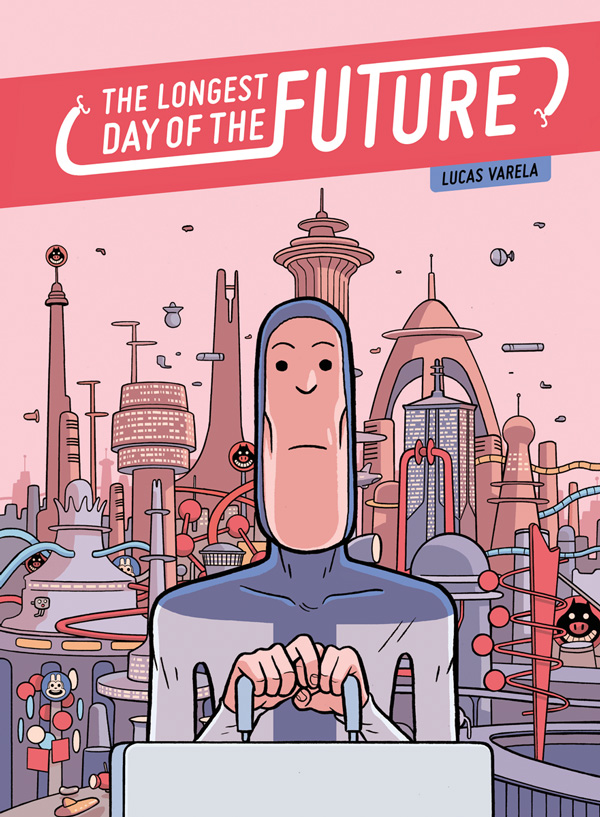Bernadou’s excellent silent parable of what it’s like to be a woman out in the world follows Canopy from her childhood — symbolically presented as a continual act of nursing with her mother until womanhood, when she is released blindfolded into a magical forest and left with an unknown male to find her own way. Canopy deals with various encounters with male figures, sometimes in context of other female figures vying for interaction with the male, moving from a passive flower man to a poetic musician who attracts a crowd of wild women to a man who steals her face to a playboy on top of a red tree who offers her some escape. Interspersed are interludes between Canopy and her father, filling in more of her childhood, but this time as a struggle between the two of emotional clinging versus betrayal, and a desperate attempt by the father to keep her from growing up. Bernadou packs a lot of psychology in this little book, and even though moments of it are harrowing, and even familiar, still manages to elicits laughs along with a few winces. Her stylized art is retro, lively, and fluid, with reds challenging the blacks and whites, and giving the reader some temperature beyond the pantomime.
The Longest Day of The Future by Lucas Varela
Silent slapstick mixes with violence and dystopian malaise in this futuristic story about a war between two sides at some point in the future and the devastation it causes. There are two companies, the one with the pig head logo and the one with the monkey-like face logo, in a fully-realized, complex futuristic city who are preparing to attack each other from the inside. One is moving forward thanks to some mind-bending newly-captured alien technology that promises stealth and total destruction, while the other is embracing the time-honored killer robot method. All the leaders and bureaucrats and agents swirl around each other in a frantic lead-up to an ultimate battle, and it all comes to life through Varela’s incredibly fluid, inventive word-less storytelling, with hilarious digressions and dark details. Works as a satire on the slavery of corporate culture and on the human tendency to not understand the full implications of the technology it wields, as well as just an excuse to look at some cool gross alien stuff.
Now at five issues, Mendes uses an autobiographical essay by her grandfather as inspiration for this dark story of a rural family stricken with abuse. Opening with the tense birth of Edie, tainted by her father’s violent control of her mother’s life, which forces her mother to separate from her family, isolated and terrorized by Edie’s father. Mendes captures Edie’s childhood by focusing on Edie’s free range life with the other kids, which include several naughty and fun capers, as well as some heartbreaking moments, with the darkness of the parents’ marriage like a fog that surrounds Edie’s being and occasionally threatens to fill it up. Mendes’ strength is always with her well-rounded depiction of children and while the depth of the children’s experience is so well-presented that the adult motivations remain mysterious in that context, it makes for a pure experience that mirrors a kid’s in dysfunctional situations— your life is painted with a brush that you can barely see, and rarely comprehend the movement of, but at times you can turn away from and lose yourself in growing up.









